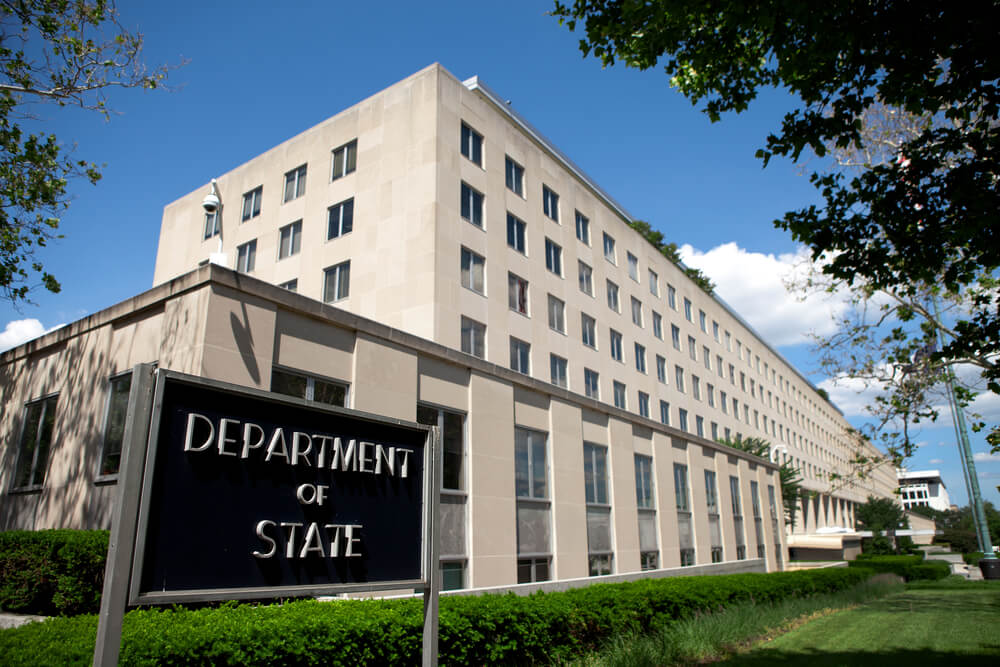China continues to ease visa restrictions step by step to encourage the arrival of international tourists and business people, at least to pre-COVID-19 pandemic levels.
Wealthier Western countries were the target of the most recent waves of cautious visa relaxations, which clearly supports the Chinese authorities' goal of having as many paying guests as possible.
The facilitation of visas for South Korean citizens in November is one of China's more important plans, given its significant market size.
Before the pandemic, in 2019, China had 4.35 million visitors from South Korea, but their number has decreased more than three times during the lockdown.
Since November, South Koreans have been able to travel to China without a visa if their stay does not exceed 15 days. The same regulation applies to 24 European countries as well as Australia and New Zealand.
This week, China surprised everyone by including US citizens in the visa facilitation policy, along with several dozen other countries.
The door is open for American visits
A new regulation, effective immediately, permits US citizens to visit China without a visa for stays no longer than ten days. A visa is still required for longer stays.
The "catch" of the new regulation is that Americans who wish to use this privilege must travel home via a third country, rather than directly from China to the USA.
Throughout the process, it will be sufficient to demonstrate to border officials which third country they will use to return to the US and proof that they plan to stay in China for up to 10 days.
The easing appears to be a cautious step towards relaxing the entry regime for China, as a visa is required for any stay longer than 10 days
The easing appears to be a cautious step towards relaxing the entry regime for China, as a visa is required for any stay longer than 10 days. The Chinese authorities have also relented in this respect, meaning that they very often issue multiple-entry visas lasting several years to visitors from the West.
Tourism is slowly recovering
With the inclusion of the USA on the visa facilitation list, citizens from more than 50 countries can travel to China without visa restrictions. But Beijing will not leave it at that.
The main reason for the gradual easing of visa restrictions is to attract international tourists, particularly from wealthier countries, and to return to pre-Covid levels that China has not yet reached.
The trend of visitors returning exists and cannot be ignored. In the first half of the year, just over 17 million foreign tourists visited China, a jump of 130% compared to 2023, when the easing of the lockdown had only just begun.
The expected return will not materialise this year, when tourism will make up around 9% of GDP
However, this is still significantly less than the nearly 50 million foreign tourists who visited China in 2019, leaving behind approximately USD 130 billion. In 2019, tourism contributed more than 11% to the GDP, indicating that Beijing's economic policy planners should give this sector significant attention.
The expected return will not materialise this year, when tourism will make up around 9% of GDP; by the end of the next decade, it is estimated to be just over 13%.
Apart from the tangible economic impact, Beijing wants to show greater openness with the relaxation of visa regulations and demonstrate that it has completely left behind the period of severe restrictions that prevailed for three years during the lockdown caused by the COVID-19 pandemic.
Concessions to foreign investors
The visa facilitation for citizens of dozens of Western countries also means easier travel for businesspeople, something Beijing is particularly interested in. Beijing primarily targets the Western business population, which visits China for business meetings and deals, with the abolition of visas for short-term stays of 10 to 15 days.
 The US State Department still considers China a very safe country, but warns that travellers should be particularly cautious due to the arbitrary enforcement of local laws
The US State Department still considers China a very safe country, but warns that travellers should be particularly cautious due to the arbitrary enforcement of local laws
Therefore, China's efforts to halt the negative trend of Western investment outflow to other economies in the region, particularly India, directly correlate with the relaxation of the visa regime.
The gradual abolition of investment arrival restrictions accompanied the visa facilitation regime, freeing the Chinese manufacturing sector from all foreign investor arrival restrictions since November's regulatory changes.
In the first 11 months of 2024, the bad trend has continued, and FDI has fallen by a further 28%. As a result, the government is under pressure to use a mix of measures to try to stop the downward spiral that is seriously damaging the national economy.
While the easing of the visa regime seems to indicate that the authorities are ready to relax the long-standing rigid policy towards guests and business people from the West, the recovery of the general climate of openness requires even bolder decisions and more time.
The US State Department still considers China a "very safe country" for most visitors but warns that travellers should be particularly cautious "due to the arbitrary enforcement of local laws, including in relation to exit bans."